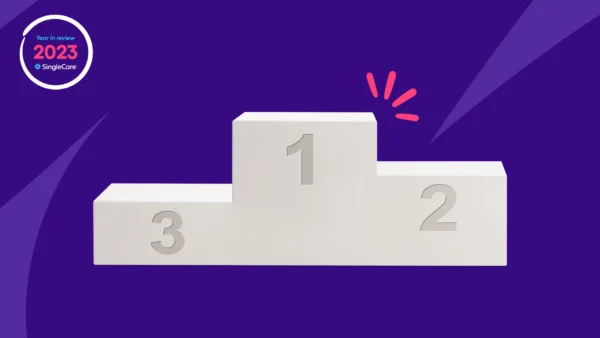Erectile dysfunction (ED) is more common than you might realize. Many men in the United States experience erectile dysfunction every year. By 2025, erectile dysfunction is expected to increase to 322 million men worldwide, according to the International Journal of Impotence Research. The prevalence of ED increases with age, but ED is not something that you have just to accept and live with. Sexual dysfunction is treatable and even curable. What’s more? Under limited circumstances, you might be able to get the cost of ED treatment covered by Medicare.
Does Medicare cover treatment for erectile dysfunction (ED)?
Some Medicare Advantage and Medicare Part D prescription drug plans will cover generic prescriptions used to treat erectile dysfunction, but only if they’re medically necessary and prescribed specifically to treat other medical conditions besides erectile dysfunction
The Division of Drug Plan Policy and Program Analysis states, “ED drugs will meet the definition of a Part D drug when prescribed for medically accepted indications approved by the FDA other than sexual or erectile dysfunction such as pulmonary hypertension.”
Medicare won’t cover treatment options like penis pumps or injections. However, penile implant surgery may be partially covered by Medicare if you qualify. Additionally, you may receive coverage for coloplast devices.
What’s covered
Any tests involved in diagnosing this health condition are covered under Part B, which is your Medicare outpatient coverage. Part B may also cover any medically necessary outpatient surgeries for ED that Medicare approves, such as penile implant surgery and coloplast devices.
What Medicare covers for erectile dysfunction:
- Exams (Part B)
- Diagnostic tests (Part B)
- Penile implant surgery (Part B)
- Coloplast devices (Part B)
What’s not covered
The Medicare prescription drug formulary does not cover Viagra, Cialis, or medications (regardless of brand/generic status) to treat ED if they are specifically prescribed to treat ED. Medicare does not cover injections or penis pumps either.
ED treatments not covered by Medicare:
- Any brand-name erectile dysfunction drugs prescribed for ED
- Any generic-name erectile dysfunction drugs prescribed for ED
- Any prescriptions that are not FDA approved
- Injections
- Penis pumps
Note: If you have both ED and one of the other indications that ED medications may treat, then you may receive Medicare coverage for that drug if it is prescribed to treat the non-ED condition.
What do I do if my Medicare coverage is denied?
You can appeal the decision made by Medicare. You can file an appeal in writing within 60 days of the denial. You file an appeal by submitting a Redetermination Request Form. You must also include a copy of your Medicare Summary Notice (MSN).
Your MSN is mailed to you every three months. This document breaks down your recent healthcare claims. Note: this notice is not a bill. If you’re unsure what the envelope will look like in the mail, here is what you can look for.
Your MSN will show you:
- A three-month summary of all your services or supplies that providers and supplies bill to Medicare
- The amount Medicare paid
- The amount you may owe the provider after Medicare paid its portion
An authorized representative, such as your healthcare provider, can also file an appeal on your behalf. You just need to complete the “Appointment of Representative” form and your redetermination request form.
If you have a Medicare Advantage plan, submit your appeal documents to your plan directly instead of the Center for Medicare and Medicaid Services (CMS).
How much does erectile dysfunction treatment cost with Medicare?
You’ll be responsible for 20% of the cost and the annual Part B deductible for any services covered under Part B. However, a Medigap policy may cover the 20% coinsurance and sometimes even the Part B deductible.
If you have Medicare Advantage (Part C), you’ll have to look at your summary of benefits to see how much your out-of-pocket costs will be for any covered surgeries or devices.
Prosthesis costs
If the prosthesis is medically necessary, your treatment, which may include all other coloplast devices, may be covered. Beneficiaries could pay upward of $2,500 to $3,000 depending on what parts of Medicare they’re enrolled in.
If you have Medicare Part B (outpatient coverage), you’ll receive coverage for 80% of the allowable costs. You are then responsible for the other 20% if your healthcare provider accepts Medicare assignment.
The good news is if you have supplemental insurance like a Medigap plan, you receive coverage for the remaining 20% that Part B doesn’t cover. All Medigap plans, A-N, will cover the 20% coinsurance under Medicare Part B. Unlike Medicare Advantage plans, Medigap plans are standardized by the federal government.
If you were eligible for Medicare before 2020 and enrolled in a first-dollar coverage plan, such as Plan F, then you will have zero out-of-pocket costs for penile implant surgery. If you enrolled in Plan G, your only out-of-pocket costs would be the Medicare Part B deductible, which is $240 in 2024.
For those enrolled in a high-deductible Medigap plan, you’ll have to meet the annual deductible before coverage kicks in. The annual deductible for Plan F and Plan G is $2,800 in 2024.
If you have a Medicare Advantage plan (Part C), you’ll want to contact your carrier directly to determine your copay. Unlike Original Medicare and Medigap, the insurance companies determine how much of the service they will cover.
Other ways to save on ED
Regardless if you have Medicare or not, there are a few ways you can save on erectile dysfunction costs.
1. Medicare Extra Help
The Medicare Extra Help program is a federal resource to reduce the out-of-pocket costs for prescription medications that are covered by Part D (in this case, ED drugs if prescribed for a non-ED indication). Depending on the level of help you’re eligible for, it can eliminate or reduce your Part D premium, deductible, and late enrollment penalty.
2. SingleCare coupons
There are free drug coupons available through SingleCare for ED medications. Even if you currently have Medicare or another type of health insurance, a SingleCare prescription discount card can save you money.
The cost of sildenafil citrate without insurance is around $1,231 for 30, 100 mg tablets. However, with SingleCare, you could pay as low as $12 for 30, 100 mg tablets using a SingleCare coupon. You may also save more money on ED drugs such as Levitra (vardenafil) and Cialis (tadalafil) by using SingleCare rather than your applicable insurance coverage.
3. Manufacturer rebates and coupons
There may be coupons available through the manufacturer. Contact the drug manufacturers to find out if you qualify.
4. Patient assistance programs
There are patient assistance programs available to certain people. Eligibility requirements often include insurance and income restrictions. One of these programs is the Pfizer Patient Assistance Program, which provides eligible patients with their Pfizer medicines for free. Other manufacturers and nonprofit organizations also offer patient assistance programs.
5. Free samples at your doctor’s office
Sometimes, the drug company representatives will leave free samples of medications at your healthcare provider’s office. However, this is not a long-term solution to save money on your prescriptions.
Sources
- Erectile dysfunction drugs, Centers for Medicare & Medicaid Services
- Medicare redetermination request form, Centers for Medicare & Medicaid Services
- Medicare Summary Notice (MSN), medicare.gov
- Your new MSN envelope, medicare.gov











